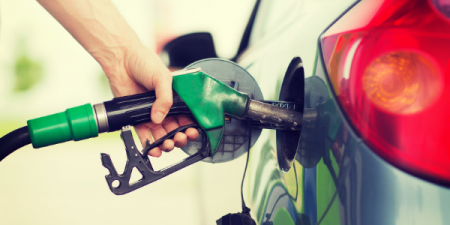6 Tips To Improve Your Fuel Economy
The downsize of engines, the reduction of cylinders and the addition of evolved combustion systems have been key elements in the reduction of fuel consumption. Even so, the constantly changing price of gas is still one of the biggest concerns for drivers. Do you want to know some tips you can follow to improve your fuel economy and save some money? Here’s what you need to know.
Read more: How To Start Your Car if the Engine Floods
1. Avoid Hard Braking And Rapid Acceleration
An essential tip in improving your MPG is avoiding rapid acceleration and quick braking. If you look at the road ahead, anticipate the movement of traffic, try to gradually speed up your car and use less brakes around turns, you can reduce your gas consumption by as much as 35 percent, saving up to 99 cents per gallon.
2. Slow Down
Take it easy on the gas pedal and maintain an adequate and stable speed. Driving at 65 mph instead of 70 can reduce your car’s fuel consumption and it doesn’t imply a big effort. While this is an imperative rule you should always follow, going the speed limit can increase fuel efficiency by up to 14 percent.
3. Reduce Excess Weight
This is one of the easiest ways to boost your car’s fuel economy and it’s as simple as removing anything unnecessary out from the trunk. You can also reduce external carrying devices such as roof boxes or bike racks. Note that carrying extra weight can increase your vehicle’s consumption by 1.5%.
4. Keep Tires With The Correct Pressure

Some studies say that over 25 percent of all vehicles have under-inflated tires, which can lead to your engine using more gas to move the car. Even if you look at your tires and they seem properly inflated, make sure they have the right pressure, usually indicated on a sticker in the door jamb or in your owner’s manual.
5. Avoid Idling
Turn off the car’s engine if you are stopping at a red right or waiting at a curb for more than 30 seconds. If you are idling you get zero miles per gallon, that’s why many of today’s vehicles come with stop/start systems that accomplish this task automatically.
6. Plan Your Journey
Try not to do a lot of short trips in one day, but instead plan your route ahead of time. Try to avoid rush hours and traffic jams, and activate satellite navigation to prevent getting lost. If you can, also try to navigate intersections to go through green lights and prevent excessive braking. The more stops you make the more times you will have to restart your engine, using up more fuel each time.
Read more: Top 5 Weird Driving and Traffic Laws in Texas
By changing a few bad habits, you can really improve your mileage. But if after trying some of those tips, your gas consumption is still high, it might be time to explore the market for a more fuel-efficient vehicle. If you live nearby Dallas, TX check our Gas Calculator and find the model that meets your needs!





